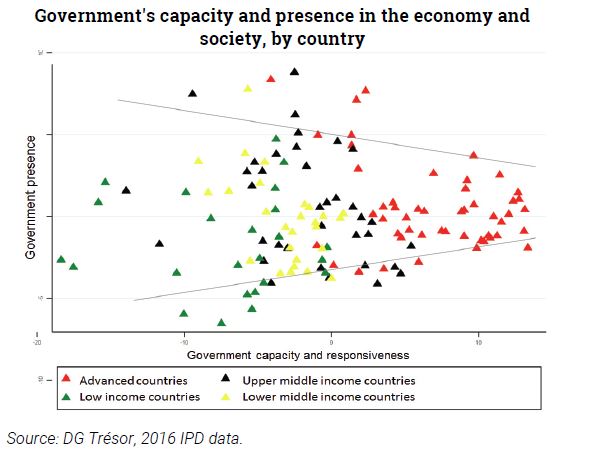Trésor-Economics No. 221 - Institutions and development: Insights from the Institutional Profiles Database (IPD)
The Institutional Profiles Database (IPD) was created in 2001 and now covers 144 countries that account for 99.6% of the world economy. Developed by the Directorate General of the Treasury, the IPD's goal is to shed light on the role played by institutions (political, economic, social, etc.) in development policies. It attempts to provide a quantitative measure of countries' institutional characteristics, based on a survey completed by the overseas economic missions of the French Ministry for the Economy and Finance.
The data in the 2016 edition emphasise the existence of several key institutional features that are both strongly connected to a country's economic development level, and strongly correlated between themselves. These key features include i) the functioning of public administrations; ii) the coordination of stakeholders, strategic vision and innovation; iii) social cohesion and social mobility; iv) security of transactions and contracts; and v) market regulation and social dialogue. Other features, such as political institutions and their democratic nature, or markets' room to manoeuvre, correlate less with the development level.
The database also shows a wide range of institutional profiles amongst developing countries, whereas advanced economies have more similar profiles (see chart). This fact tends to support the theory that institutional characteristics converge as countries develop.
This convergence is stronger when it comes to (i) the government's capacity to provide basic services (security, justice, other public services, economic stewardship) and (ii) the presence of government in political, economic and social life.
The IPD is available (in French and English) at: https://www.tresor.economie.gouv.fr/Ressources/8087_une-mesure-originale-des-caracteristiques-institutionnelles-des-pays and http://www.cepii.fr/ipd.asp
